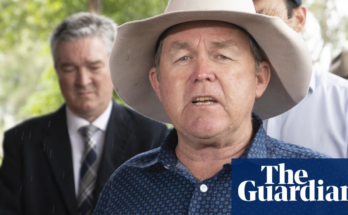JERUSALEM (Reuters) – As Israel’s election count neared completion, Prime Minister Benjamin Netanyahu and those seeking to topple him were deep in the complex coalition arithmetic of how to reach the magic 61 seats that delivers a majority in Israel’s Knesset.
With more than 95% of ballots counted it is clear that Netanyahu’s right-wing Likud will be the single biggest party. And he has more natural allies than the disparate rivals ranged against him. But even after four elections in two years, neither side has a clear path to victory.
WHO MATTERS?
NETANYAHU campaigned on a world-beating COVID-19 vaccine rollout. Even as the ballots were being counted, Israel passed the mark at which 50% of the population received two vaccine shots.
But such is the polarisation in Israeli politics that even this could not break the stalemate. Netanyahu’s supporters love ‘King Bibi’ but critics accuse him of mismanaging pandemic lockdowns that hit Israel’s economy hard.
They also highlight corruption allegations that led to the tag ‘Crime Minister’. Netanyahu appeared in court earlier this year and pleaded not guilty to charges of bribery, fraud and breach of trust.
Netanyahu looks set to lose around six seats – falling to around 30 in Israel’s 120-seat parliament. This makes him more reliant on right-wing rivals who will demand concessions during coalition horse-trading.
YAIR LAPID, 57, a former finance minister and TV host who leads the centre-left party Yesh Atid – “There is a Future”.
His party is predicted to come in second, with around 17 seats.
Lapid campaigned to “bring sanity” back to Israel with clean government and moderate leadership, a not-so-subtle dig at Netanyahu.
But he faces an even harder task – uniting disparate parties from across the political spectrum. All want to see Netanyahu removed, but they are not obvious bedfellows.
NAFTALI BENNETT, 49, a former Netanyahu aide, defence minister and high-tech millionaire who heads the ultra-hawkish Yamina party and is vying to take over from his former boss as leader of the Israeli right.
With around seven seats, Bennett has positioned himself as a king-maker, refusing to commit to Netanyahu or against him. But joining with centrists would damage his credibility among hawks.
BEZALEL SMOTRICH, 41, heads the far-right Religious Zionism party, projected to win six seats.
It includes Itamar Ben-Gvir, a former activist with the now-outlawed Kach movement, which advocated that Israel expel Arabs. It also includes a member of the Noam movement, which opposes LGBT rights and recognition of non-Orthodox Judaism in Israel.
The party includes hardline Jewish settlers among its base, and rejects any territorial concessions to the Palestinians, further jeopardising the already slim chances of progress on a two-state solution in the coming years if a Netanyahu-led coalition relies on them for support.
MANSOUR ABBAS, 46, an Islamist member of Israel’s 21.5% Arab minority who is forecast to win four seats.
Mansour shook the Arab political establishment by leaving a unity coalition and saying he was open to working with Netanyahu to address violence and other social issues in Arab towns.
But no Arab party has ever joined a ruling Israeli coalition, and Abbas’s proposal is rejected by most Arab voters, many of whom identify with their Palestinian brethren in the West Bank and Gaza. The far-right Smotrich has said he will not sit alongside Abbas.
GIDEON SAAR, 54, a former cabinet minister who quit Likud to set up the New Hope party, vowing to end Netanyahu’s reign.
Like Likud his party opposes Palestinian statehood. Saar’s campaign centred on clean government and jump-starting the economy but is expected to land only six seats.
A skilled politician, Saar could help unite current opposition factions from left and right.
But Netanyahu is a consummate political operator well-practised in the art of forming coalitions under pressure. He will likely spend the coming days telling New Hope defectors that their breakaway was a flop and urging them to come back ‘home’ to Likud.
WHAT HAPPENS AFTER THE FINAL COUNT IS IN?
Final results are expected late Thursday or Friday. Israel’s president will consult with party leaders about who they want as prime minister. By April 7 he is expected to choose the legislator with the best chance of forming a government.
That nominee has up to 42 days to put a coalition together. If he or she fails, the president asks others to try.
If nobody succeeds, Israel goes to a fifth election.
Reporting by Stephen Farrell; Editing by Catherine Evans



